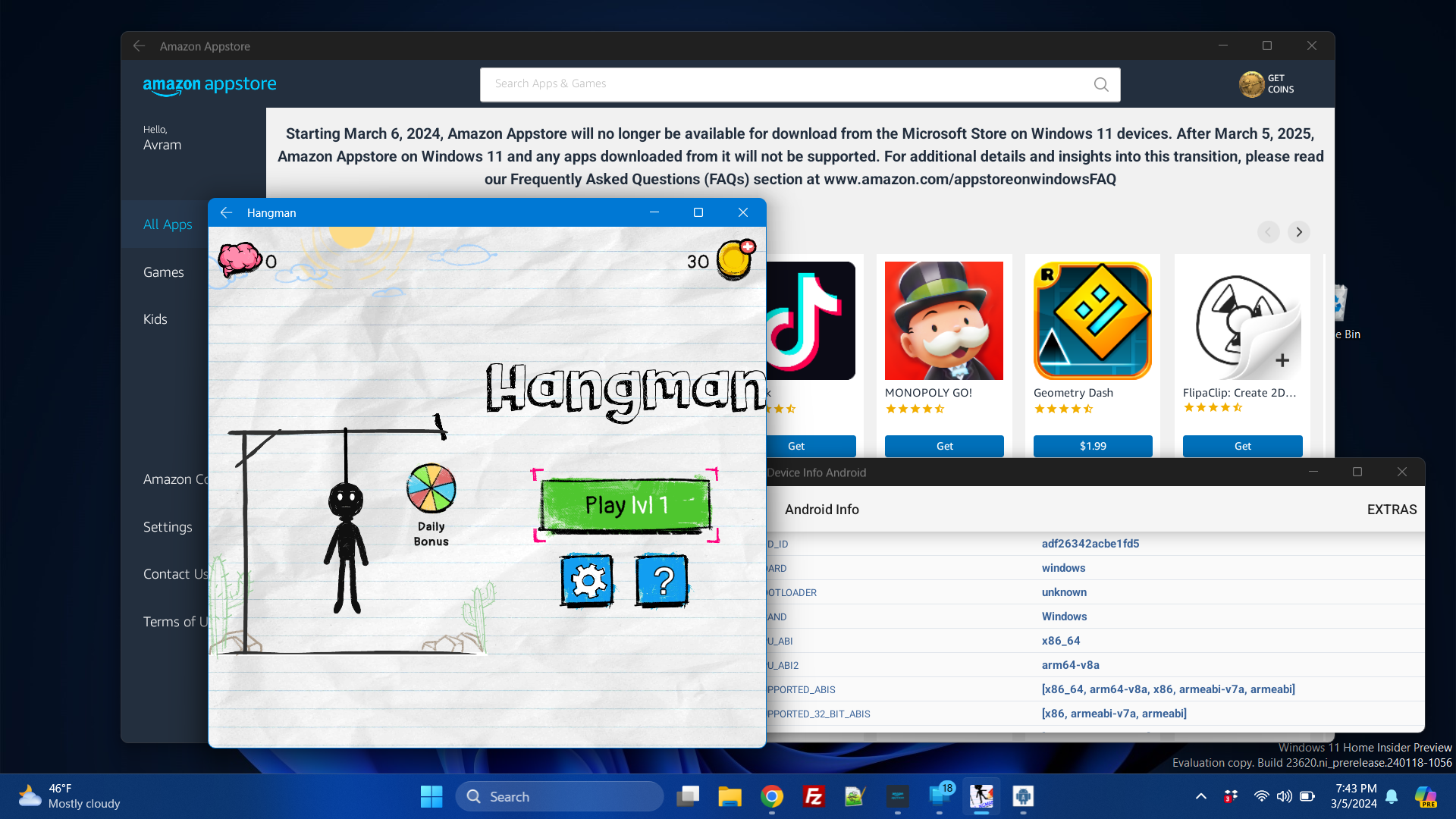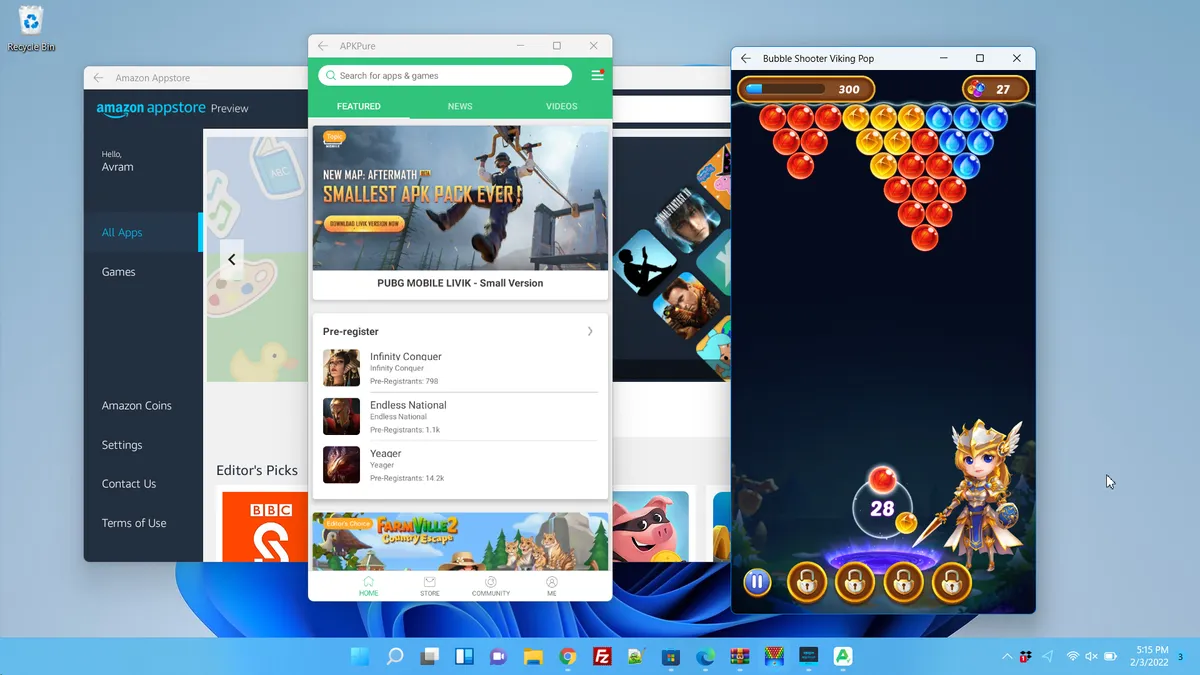
Normally, when Microsoft kills a major Windows feature, it's a cause for consternation. Remember the brief moment when Paint 3D was supposed to replace Windows Paint? However, we just learned that Microsoft is dumping Windows Subsystem for Android, Windows 11's optional Android emulator and no one is going to miss it.
Without any fanfare, the company updated the Windows Subsystem for Android documentation page on its website and included a message stating that WSA won't be supported as of March 5, 2025. The Amazon App Store app, which is required to use and install WSA, is set to disappear from the Microsoft Store as soon as March 6, 2024. However, according to Amazon, users will still be able to download it from a dedicated link. And anyone who has WSA installed may be able to continue using it even after the end of support.
When Microsoft first announced Windows 11 in 2021, I was excited to hear that it would run Android apps. The Android emulation didn't arrive at launch—it was rolled out very gradually to Windows Insiders and then eventually to production—but it was a major selling point for the new OS. I imagined running Android games and mobile-only software alongside my favorite Windows programs.
However, the reality of WSA has been far different from its promise. Instead of running any Android app, it is designed only to run the limited selection of apps available on Amazon's app store. There are ways to sideload apps, but they aren't officially supported, and you can expect problems if you want to use something that requires Google Play services. I would really have liked to run the official Gmail app in a window, but that would only work -- maybe -- with a hack.
Perhaps even worse than the app selection is the sluggish performance. Running WSA on my laptop was an exercise in frustration. It would take seemingly forever to open and fire up an app. Even when it wasn't actively running, I'd occasionally get error messages saying that it had crashed. Eventually, I uninstalled it and gave up.
Even if you could install any app from the Google Play Store and it ran perfectly, WSA just isn't that useful in 2024. Four or five years ago, you needed a phone if you wanted the TikTok app or the Facebook app. Today, you can get just about any productivity or entertainment app you might want from the Microsoft Store, where it has been coded for Windows, or you can find a web-based alternative.
Most Android apps are designed for touch, and though they work with keyboards and mice, the experience isn't optimal. I installed my favorite Android game, Bubble Shooter Viking Pop, in WSA, and it was sluggish and annoying to use on the desktop.

Some folks have 2-in-1 laptops with touch screens, so WSA might be a little better for them. Even so, the apps are usually made to run in portrait mode on a small screen, not full screen on a 13, 14, or 15-inch landscape display. Back in 2021, when Windows 11 launched, maybe there was still some hope of standalone Windows tablets catching on. However, apart from the Surface (which is more of a full-service laptop than a casual tablet), that dream is dead and buried.
If your reason for wanting to emulate Android is to play games, you might want to think again. The selection and quality of Android games pale in comparison to what you can get for Windows. Also, Amazon's Android app store omits popular games, and many games depend on Google Play services.
The good news is that there's an alternative to running WS for almost every reasonable use case. If you want to send / receive SMS messages from your computer, you can use Phone Link, which connects to your phone via Bluetooth.
If you have a Samsung Android phone, you can use Samsung Flow to remote control your phone, showing its screen (and all its apps) on your desktop. If you don't have a Samsung phone, third-party apps such as AirDroid do the same.
What if you're a developer who wants to program Android apps and you need to test them on your P ? That's no problem because Google's own Android Studio lets you do that.
So, while WSA seemed like a good idea a few years ago, it's just not necessary today. I have more tears for Clippy and Microsoft Bob.
Note: As with all of our op-eds, the opinions expressed here belong to the writer alone, not Tom's Hardware as a team.







